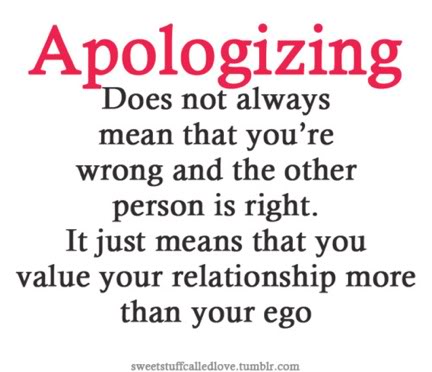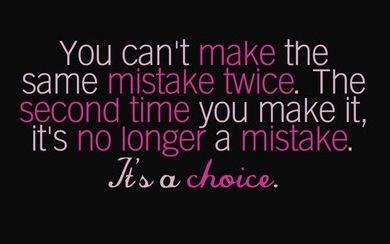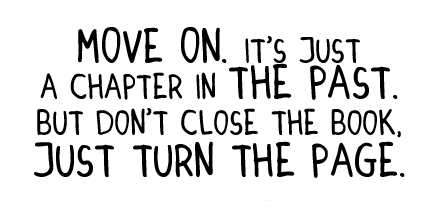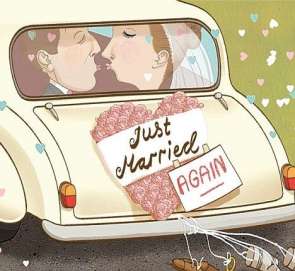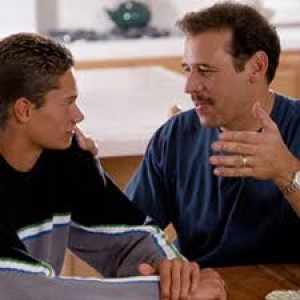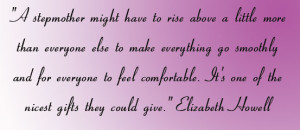How to Handle a Mistake with Your Children

Handling a Mistake with Your Children
Parents, whether biological or step, all share a common trait – we will all make mistakes with our children. While the nature and impact of the mistake is important, what is equally important is how you recover. Recently, I blew it. Nathaniel, my 13 year old, wanted to see the movie “A Haunted House,” and I took him to see it thinking the movie was rated PG-13.
Shortly after the movie started, I was surprised by a scene with an actor engaging sexually with a stuffed animal. I naively thought the PG-13 standards must have been relaxed. I had an impulse to grab Nathaniel and leave, but I quickly dismissed it. I rationalized the money already spent and that we were being entertained.
I would uncomfortably glance over to see Nathaniel’s reaction. It wasn’t till we got home that I learned the movie was rated R. I thought about the dad on Reddit who recommended porn sites to his underage son so he could avoid viruses and malware. Was I any different from him?
When I was in the Air Force, I learned the value of checklists. There were numerous checklists which identified the specific actions an airman needed to take when encountering a certain situation, for example, processing a new person on base, restarting an aircraft engine in flight, emergency destruction of classified material, etc. – nothing was left to the imagination. I didn’t have a checklist at the time, but here’s what I’ve come up with after the fact.
Handling a Mistake Checklist
ð Ask for Guidance. Ask God for wisdom and guidance as to what you should do.
ð Act. The wisdom and guidance you receive will mean nothing if you don’t use it.
ð Tell Those Affected. I told my wife the same day we went to the movie. No secrets – anything affecting your child, whether it’s good or bad (especially if it’s negative), should be shared with your partner.
During the movie I was periodically glancing at my son to see if I could get some visual clue as to how the movie was impacting him. I was looking for visual references without considering how it was affecting his heart and mind. Afterwards, I spoke to Nathaniel about the mistakes I made; I admitted to him I failed to check the movie rating and exposed him to content he is not mature enough for.
ð Take Your Lumps. Don’t try to blame others. For example, I could have blamed Nathaniel for wanting to go to an R rated movie although it wouldn’t have done much to enhance my parental credibility with Nathaniel or his mom. Taking responsibility and admitting your mistake can win you respect which can be a rare commodity especially for a stepparent. Your stepchild might think, “You know, even though [your name] messed up, it took a lot of character to admit it.” Remember you’re modeling for your children how you want them to behave when they’re adults.
ð Apologize. You might be embarrassed about your mistake. I know I was from mine. Most of us understand mistakes are a part of life and are appreciative of the fact you are sorry and are trying to make amends.
ð Learn From It. As a young lieutenant, a senior officer told me he expected me to make mistakes. I just need to make sure I didn’t keep making the same ones. We need to learn from our mistakes so we don’t repeat them. Once you have acknowledged your mistake you need to learn from it and do whatever you can to not do it again.
ð Move On. After you acknowledge the mistake, informed everyone affected by it, and have done your best to correct the mistake, it’s time to move on. Don’t dwell on it. Dwelling on your mistake doesn’t help you or anyone else.
From an early age, most of us were instilled with the fear of making mistakes; we learned that it is “bad” to make mistakes. As children we received varying degrees of punishment for disobeying our parents. During our school years, we learned mistakes usually equates to lower grades. As employees, we face consequences like being written up and firing for making mistakes.
Unfortunately, this fear overshadows the achievements that were made because of mistakes. Thomas Edison made 999 mistakes with different materials before he discovered tungsten was best filament for the light bulb. The Post It Note wasn’t a deliberate invention but was the result of a failure to make a strong adhesive. The next time you make a mistake with your child, look beyond the mistake and see the potential. Be bold, be gentle and be kind to yourself.
Please send this post to your favorite social media using the buttons below. Thank you.



